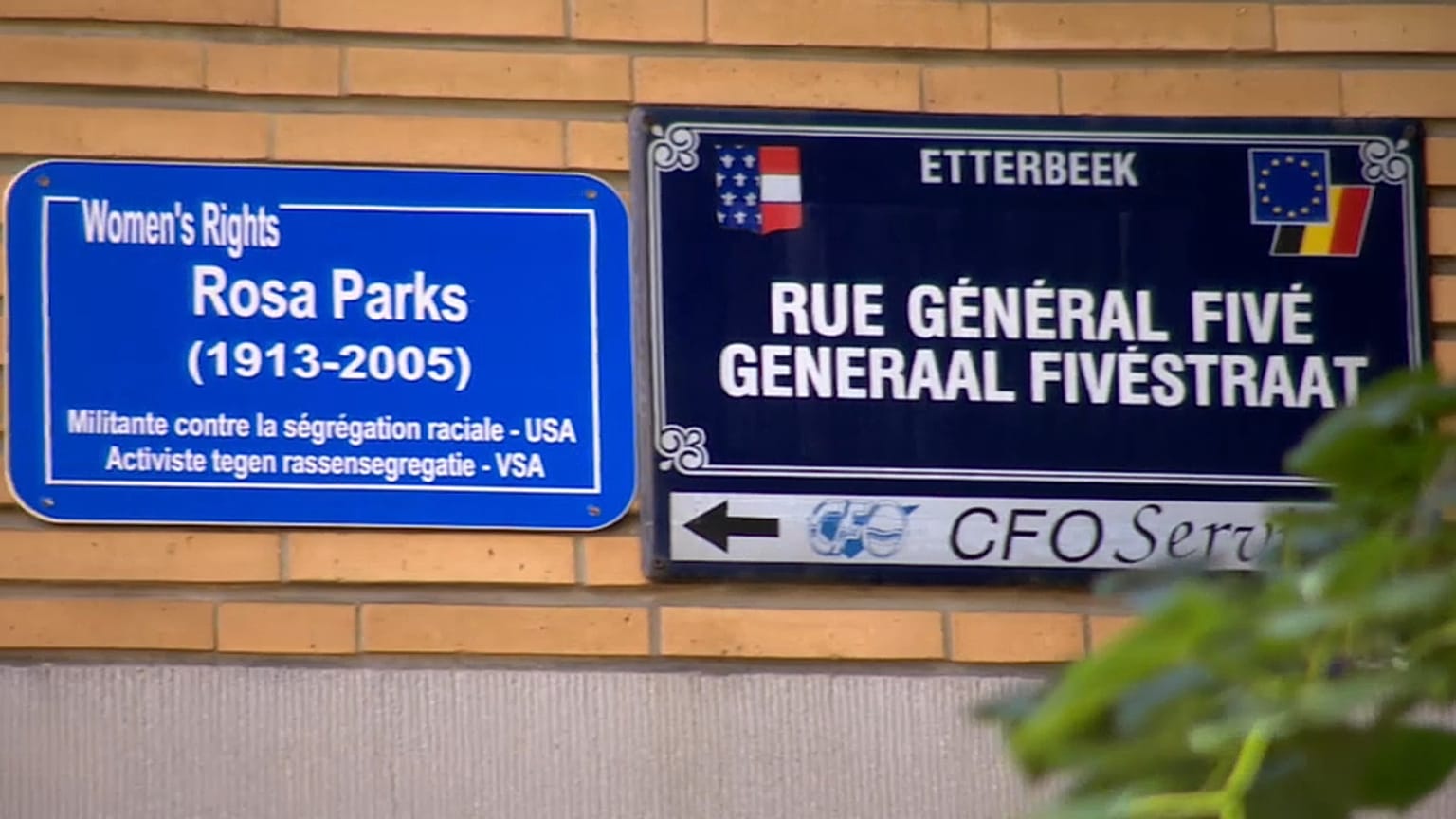Rosa Parks, Berta Cacéres and Kebedech Seyoum have been added to roads that were previously named for colonial-era figures.
Residents of Etterbeek district in Brussels have noticed some changes of late - familiar streets, with not so familiar names.
As part of a new project by the local government, plaques have been added to streets named for colonial figures displaying names of individuals who were active in the global struggle for equality, including Rosa Parks, Berta Cacéres and Kebedech Seyoum.
The project was due to be launched in March on International Women's Day, but the coronavirus lockdown meant it was postponed. Recent anti-racism protests give new meaning to the initiative.
Françoise de Halleux, the deputy mayor of Etterbeek, told Euronews that the anger spilling out in street protests and graffiti on colonial-era statues is evidence of general frustration, and that this is now the moment to take stock of the roots of discrimination.
"People do not have the same life due to their skin colour, according to whether they are a man or a woman, according to their sexual orientation, according to the fact that they have a disability," said Halleux.
The new street signs are not designed to be a permanent fixture and are due to remain in place for the next nine months. But so far local residents have welcomed the project, as have anti-racism NGOs, although they have stressed that Belgian society must move beyond symbols.
"We must move towards the abolition of all the structural discrimination suffered by people with an immigrant background," said Carlos Crespo, president of MRAX (Movement against racism, antisemitism and xenophobia).
He wants to see the end of discrimination in employment, the end of discrimination in housing, adding that removing statues and street names is 'just the tip of the iceberg'.
But not everyone believes removing historical fixtures is the way forward.
Francis Balace, a historian at the University of Liege, said removing statues does 'not make sense'.
For example, King Leopold II of Belgium is blamed for the genocide of 10 million people in the former colony of the Belgian Congo, but Balace points out that while Leopold II was the sovereign of the Congo Free State, he never actually set foot there and he was also King of the Belgians.
Etterbeek wants to make its street sign project into an educational tool. Walks for residents and schoolchildren accompanied by historians are planned in the future to give a historical perspective.















